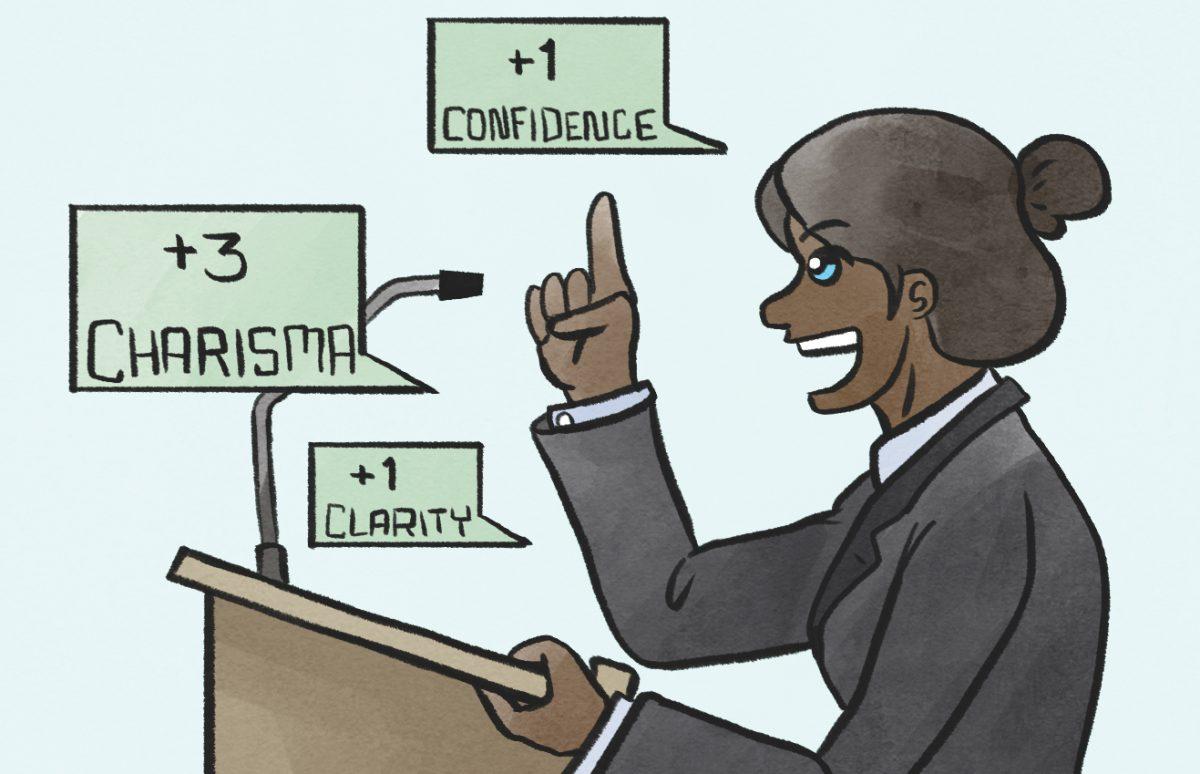Students at UTD created a new competitive speech team.
After discovering UTD didn’t have a speech team, Hadia Zahid, business administration freshman and president of UTD Speech, alongside advisor Bradley Skiles, a manager at the Office of Information Technology, set out last fall to create UTD Speech.
Skiles, who has experience in both competing and coaching competitive speech, said at some schools, the speech teams and debate teams work closely together. Upon arriving at UTD, he was surprised at the absence of a speech team.
“I think part of that is we don’t have a speech communication department per se, and our student organizations are centrally managed,” Skiles said. “I think if we had a Ph.D. program in communications, we would likely have a speech team, but then again, it was surprising we didn’t have one. But it’s time we got started.”
While UTD does not have a central communication department, Skiles said that in surveys done with college recruiters, every year, one of the most sought-after skills is communication ability.
In addition to the marketability benefits of developing speaking abilities, students get to talk about issues that they feel passionate about, Zahid said. Competitors have the option of choosing from a wide variety of topics, including Islamophobia, juvenile incarceration, abortions and other controversial topics.
“My last year’s speech was all about the veterans’ stigma, so the idea that veterans with mental health disorders are basically stigmatized in society,” said Shannon Cotts, vice president of UTD Speech. “They’re viewed as not human. They’re viewed as being damaged, broken … And I personally have family members who were veterans and had PTSD, so that was something that was very near and true to me that I took to competition and then went as far as I possibly could with it.”
Like Skiles, Zahid has previous experience in speech, and was captain of her high school speech team. She said her experiences there were important in motivating her towards starting UTD Speech.
“I really think public speaking and writing your own speeches are two skills that I learned a lot from it,” Zahid said. “And I thought that other people should learn from it more, and it’s something that’s really important to me because that’s how I gained my own voice. So I thought that I wanted to continue that through my college years and decided to make this club.”
Competitive speech is divided into two main events: limited prepared speech and prepared speech. Limited prepared speech is primarily characterized by the limited amount of time contestants have to prepare speeches. They are given a topic selected by the hosting judges, and 30 minutes of preparation to give a seven-minute speech. Prepared speech, on the other hand, typically has students select a topic beforehand to present.
Skiles said the criteria judges use when evaluating speeches include the originality, quality of the research and content, organization and a rhetorical style. Competing individuals need to demonstrate they have gone to credible sources, even occasionally interviewing individuals with authority.
For prepared speech, students choose topics early in the competitive cycle and begin writing their speeches.
“I’ve grown up with the idea that my speeches end up becoming my babies,” Cotts said. “That I write them in the beginning of the year. And so for the entire year, I’m preparing this one speech that I’m constantly revising trying to make my own personal performance better.”
By choosing topics that personally affect them and by doing independent research, students become more informed about their opinions and about the world around them, Zahid said. In this way, competitors learn to speak up with resolution.
“I think that (UTD Speech) helps with the academic discourse because it doesn’t discriminate based on whether (students) are Republican, Democrat or what religion or ethnicity you are,” Zahid said. “It’s more about diversity. You have an opinion and you have a voice and you should be able to speak it.”
While the topics of competitive speech has evolved over time, the role of speech in creating a critical discourse on current issues has remained constant.
“It’s so that every generation is going to have their own area of interest,” Skiles said. “Students are going to speak to what’s presently happening in the culture. So the topics have changed because they will, and that’s natural and that’s what’s fun about it, because as the world changes, needs and interests change. You’ve got all a whole new set of topics students get to pick from.”
UTD Speech gives members the opportunity to develop their ideas and stances, as well as providing guidance. Skiles and the officers provide critique in both the writing and presentation so students may improve their speaking ability.
“Find your topic, find what’s important to you,” Zahid said. “Find what you’re passionate about and let us know, and we’ll help you write it up and talk about it.”











